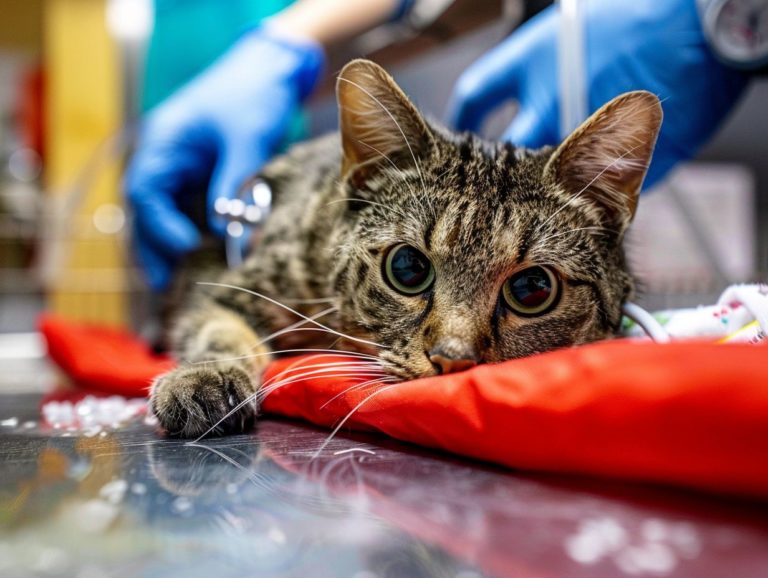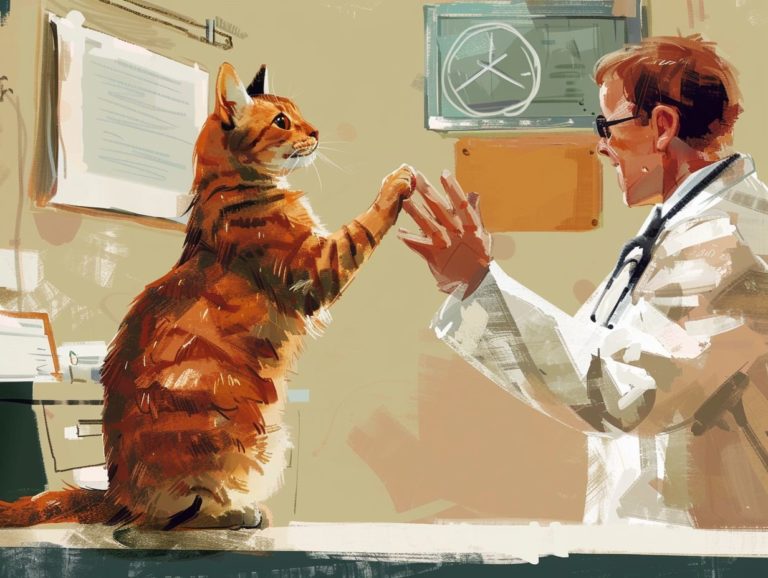Pet Health Plans How They Differ From Human Health Insurance
This comprehensive article covers various aspects of pet health plans, including their significance, distinctions from human health insurance, advantages, selecting the appropriate pet health plan, and alternative options. Pet health plans are essential for the well-being of your beloved pets. These plans are programs offered by pet insurance companies or pet health service providers to help manage the costs of veterinary care and enhance the quality and accessibility of pet healthcare. The benefits provided in a pet health plan can range from basic accident coverage to comprehensive coverage that includes services such as wellness visits, dental care, and specialized treatments.
Key Differences Between Pet Health Plans and Human Health Insurance
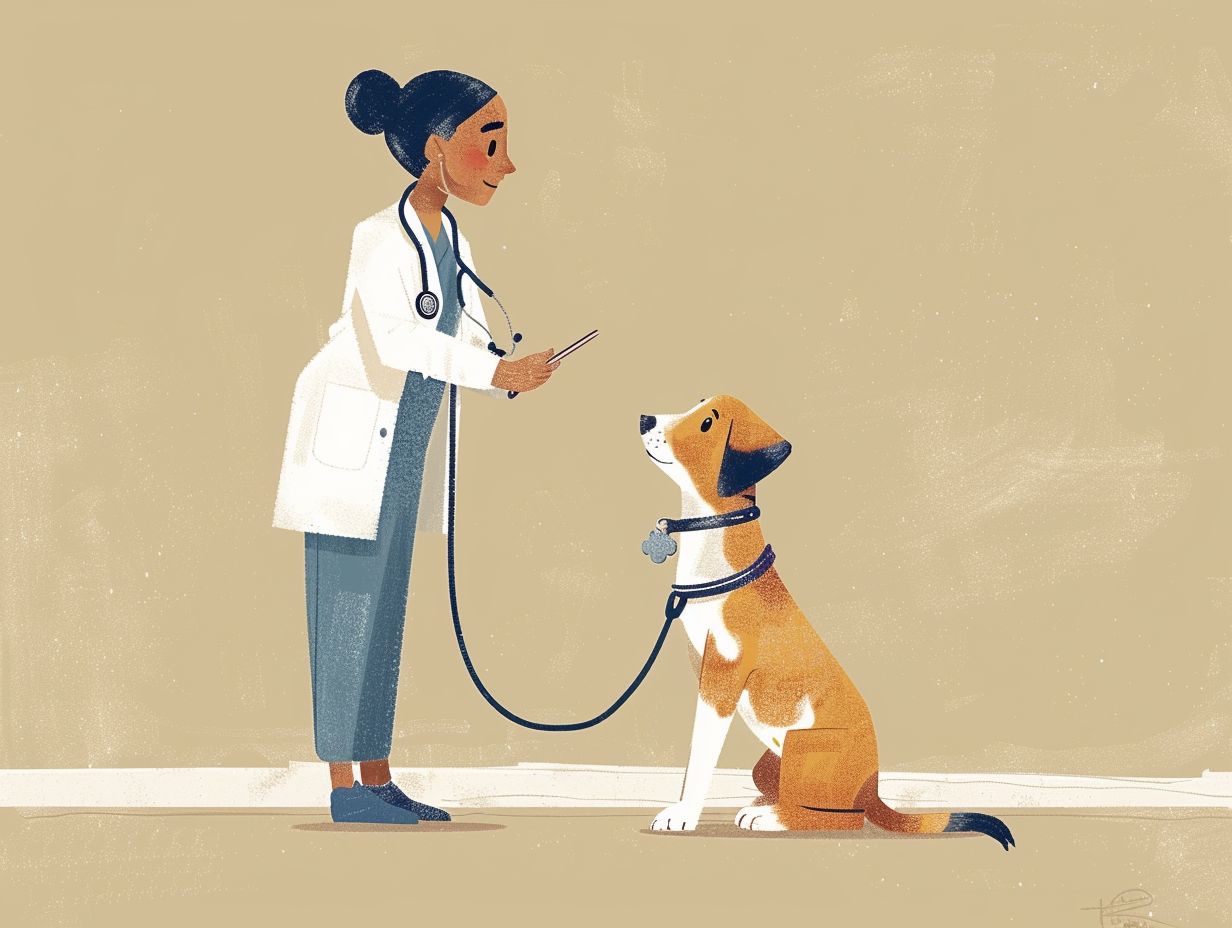
A primary distinction between pet health plans and human health insurance lies in their objectives. Human health insurance is designed to cover rare but costly medical treatments for a large population, while pet health plans are tailored to cover more common veterinary care expenses for a smaller group. This disparity leads to differences in coverage, eligibility criteria, and costs.
Coverage
Pet health plans offer a broader range of benefits for pets compared to human health insurance policies for humans. Most human health insurance plans cover basic preventive care only after meeting a high deductible, typically covering 60 to 90% of costs post-deductible. Human health insurance policies often have caps on maximum payouts, ranging from $1 million to $10 million. In contrast, pet health plans cover a higher percentage of care costs across different benefit levels without requiring deductibles. Additionally, pet health plans are usually more cost-effective than human health insurance, with monthly premiums ranging from a few dollars to a few hundred dollars.
Eligibility
Another key distinction is that pet health plans do not impose eligibility requirements, unlike human health insurance which considers factors such as age, gender, health status, employment, and location. Human health insurance companies allocate significant resources towards marketing, underwriting, and compliance, adding 15 to 20% to policy costs. Conversely, pet health plans are simpler products, available at lower costs with streamlined processes.
Benefits of Pet Health Plans
Pet health plans offer various benefits, such as enhancing access to quality veterinary care for pets, providing financial security for pet owners against expensive treatments like surgeries and chemotherapy, and aiding in reducing overall pet care costs. By incentivizing regular check-ups and vaccinations, pet health plans encourage early disease detection and treatment, thus aligning pet owners’ and veterinarians’ interests.
Financial Protection for Pet Owners
Pet health plans can safeguard pet owners financially by capping out-of-pocket expenses during costly treatments. This protection is particularly crucial for owners of large animals like horses, for whom treatment costs can be substantial.
Lowering the Cost of Pet Care
Pet health plans can reduce pet care expenses by encouraging owners to seek regular veterinary care instead of resorting to emergency clinics as a last resort. This proactive approach not only saves costs but also helps control the spread of infectious diseases. By bundling services and offering discounts for bulk purchases, pet health plans can further lower veterinary care costs.
Key Takeaways:
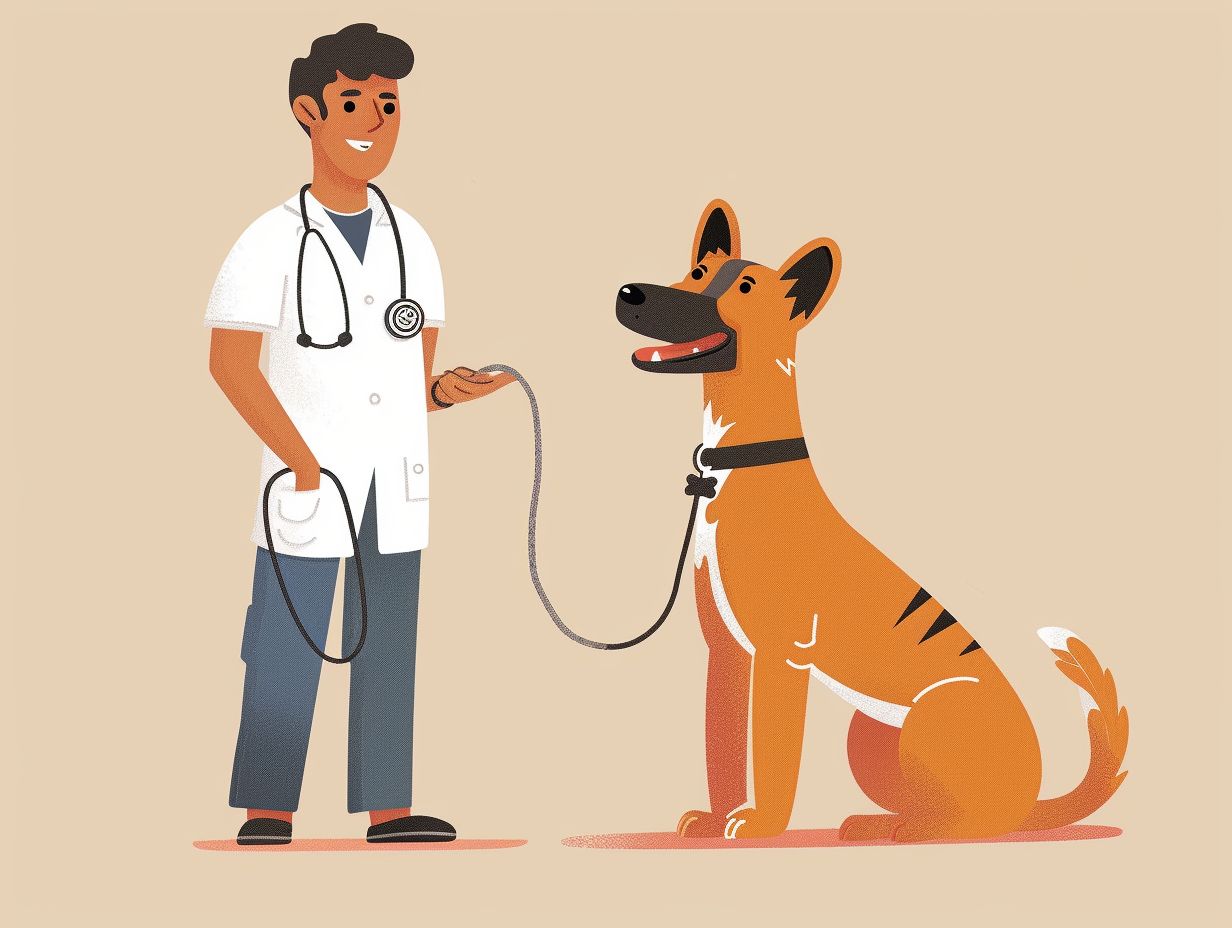
Understanding Pet Health Plans
For pet owners who want to ensure comprehensive medical services for their pets, understanding Pet Health Plans is crucial. These plans offer a range of coverage options and benefits designed to address the health and healthcare needs of pets effectively.
Typically, Pet Health Plans include coverage for services like routine check-ups, vaccinations, emergency care, surgeries, and medication. While Pet Health Plans usually do not cover pre-existing conditions, some policies may offer partial coverage or have waiting periods for such conditions.
Most Pet Health Plans operate on a reimbursement basis, requiring pet owners to pay for services upfront and then submit a claim for reimbursement of covered services. Lifetime coverage benefits ensure that pets are protected for ongoing or chronic conditions throughout their lives, providing peace of mind for pet owners.
What are Pet Health Plans?
Pet Health Plans are insurance policies designed to cover the medical expenses of pet treatment, including surgeries, treatments, and preventive care, thereby providing financial protection to pet owners from unexpected veterinary expenses. These plans offer different types of coverage, such as accident coverage, illness coverage, and wellness coverage.
Accident coverage typically pays for costs related to sudden traumatic injuries, like broken bones or accidental poisonings. Illness coverage offers financial assistance for chronic conditions or diseases the animal may have. Wellness coverage includes preventive care, such as annual exams, vaccinations, and professional teeth cleaning.
Pet health plans operate by reimbursing the pet owner for a portion of the covered expenses once they have met their deductible. Unlike human health insurance, pet health plans usually have lower coverage limits and do not cover pre-existing conditions.
Key Differences from Human Health Insurance
It is important for pet owners to understand the key differences between pet insurance and human health insurance when choosing the right pet insurance plan for their pet. While both types of insurance offer financial protection for medical treatment, there are significant variations in coverage, claims processes, and reimbursement rates between the two.
One major distinction is that pet insurance covers veterinary expenses related to accidents, illnesses, and preventive care for animals, whereas human health insurance covers medical care specific to human diseases and conditions.
Pet insurance claims typically involve submitting receipts and bills to the insurance company for reimbursement, unlike most human health insurance policies that entail direct billing between healthcare providers and insurers. This can affect the convenience levels for pet owners based on the pet insurance policy.
Historically, pet insurance has lower coverage limits than human health insurance, potentially resulting in reduced financial assistance for extensive veterinary treatments. Therefore, pet owners should carefully assess their pets’ unique needs and consider purchasing specialized pet health plans to ensure comprehensive coverage and financial security during pet medical emergencies.
Coverage and Eligibility
Coverage and eligibility criteria for Pet Health Plans vary among insurance companies and depend on the specific policy chosen. These plans provide coverage for a range of medical conditions specific to animals, ensuring that pet owners have access to quality veterinary care for their pets.
Common areas of coverage in Pet Health Plans include accidents, illnesses, surgeries, medications, and preventive care for pets. Therefore, the eligibility criteria for pet insurance often consider the age, breed, and overall health of the pet.
With coverage for emergencies, chronic illnesses, and hereditary issues, pet owners can rest assured that their pets will receive necessary medical care without financial strain. Unlike human health insurance, pet insurance focuses on covering veterinary costs rather than primary care medical treatments, offering greater flexibility and customization to meet the unique needs of each pet.
Cost and Payment Options
Cost and Payment Options for Pet Health Plans are determined by policy-related factors such as the type of policy, coverage limits, and deductible amounts. Pet owners can choose coverage plans with different monthly premiums, deductibles, and reimbursement percentages to suit their financial circumstances and desired extent of pet care benefits.
Monthly premiums vary, ranging from a low amount for basic coverage to a high amount for comprehensive coverage with high limits and extra benefits. Deductible amounts impact the out-of-pocket expenses pet owners must pay before the insurance covers the remainder. Reimbursement rates differ, with some policies offering a fixed percentage of the vet bill while others reimburse based on a set fee schedule.
Payment frequency options, including monthly, quarterly, and annually, are available, influencing the convenience and cost of the plan.
Benefits of Pet Health Plans

Pet Health Plans offer several benefits, including financial protection, peace of mind, and improved access to quality veterinary care for pets. These plans assist pet owners in covering unforeseen medical expenses and ensuring their pets receive necessary treatments in a timely manner.
The primary advantages of Pet Health Plans involve providing pet owners with the ability to seek veterinary care for their pets without concerns about the treatment costs. This enhanced access to veterinary services enables regular check-ups, vaccinations, and early detection of potential health issues. By having pet insurance, owners can avoid the stress of making medical decisions based on their financial circumstances. This sense of security guarantees that pets receive timely medical care and alleviates the burden on owners, who can be reassured that they are offering the best care for their pets.
Improving Access to Veterinary Care
Improving access to veterinary care through Pet Health Plans is essential for enhancing pet welfare and ensuring pets receive timely medical attention. By encouraging pet owners to regularly take their pets to a veterinarian for checkups, vaccinations, and wellness programs, Pet Health Plans play a crucial role in promoting proactive pet healthcare.
These plans provide structure to the provision of veterinary services, equipping pet owners with the tools needed to actively maintain their pets’ health. With comprehensive coverage options available, pet owners can ensure their pets receive consistent care, ultimately contributing to their vitality and overall quality of life. This proactive approach not only aids in disease prevention but also facilitates early detection and treatment, leading to improved health outcomes for pets.
Through Pet Health Plans, regular visits to the veterinarian, preventive screenings, and routine medical check-ups become more accessible and affordable, supporting comprehensive pet care.
Financial Protection for Pet Owners
One of the key benefits of Pet Health Plans is providing financial protection for pet owners, helping them mitigate the impact of unforeseen veterinary expenses. These plans cover a significant portion of veterinary medical costs, including treatments, surgeries, and medications.
By enrolling in a pet health plan, pet owners can efficiently manage their pets’ medical bills without fretting about financial constraints. These plans offer a financial safety net, assuring pet owners that they can afford essential medical treatments and emergency care for their pets.
With coverage for a range of veterinary services, pet health plans enable pet owners to make well-informed decisions regarding their pets’ health, ensuring they receive the necessary care they deserve.
Choosing the Right Pet Health Plan
Selecting the right Pet Health Plan relies on a thorough understanding of coverage options, insurers, and the types of medical treatments included. Pet owners should assess their pet’s healthcare needs and financial situation to choose the most suitable plan.
It is crucial to grasp the specifics of each coverage option provided by different insurers. Some plans may cover only basic care like routine check-ups and vaccinations, while others may extend to more extensive care such as surgeries, emergency treatment, or chronic condition management. Examining the range of medical treatments encompassed in the policy will ensure that your pet’s unique healthcare requirements are catered to.
By comparing insurers and their offerings, pet owners can identify the appropriate pet health plan that is cost-effective and comprehensive for their pets.
Factors to Consider
When choosing a Pet Health Plan, important factors to consider include the age of the pet, the breed of the pet, the pet’s pre-existing conditions, and the pet owner’s financial capacity to handle unexpected veterinary expenses. These factors are crucial for making informed decisions about selecting appropriate pet health insurance plans.
The age of the pet is a significant consideration in this decision-making process, as it can influence the type of coverage needed, especially for older pets requiring more frequent veterinary visits. Certain breeds of pets may have inherited conditions, making it essential to choose a plan that covers these specific conditions. Pet owners should be mindful that pre-existing conditions might not be covered by pet insurers, highlighting the importance of conducting a cost-benefit analysis of pet insurance plans to find the right balance between affordability and coverage for the pet’s needs.
Alternatives to Pet Health Plans
Pet owners have various alternatives to Pet Health Plans to help pay for pet medical care, such as saving for pet care expenses or seeking additional assistance to cover veterinary costs. Planning ahead for their pets’ medical needs by saving for pet medical care expenses or accessing additional resources for financial assistance is recommended.
Wise budgeting is another useful tool for controlling pet care expenses. Including a line item in a budget for veterinary care, grooming, and other pet-related expenses allows pet owners to have more control over their overall expenses.
Specialized discount programs or negotiating payment plans with veterinary clinics are practical methods to alleviate immediate financial pressures. It is important for pet owners to be aware of the different financial strategies available to them for pet medical care to ensure their pets receive necessary care without causing undue financial strain.
Saving for Pet Care Expenses
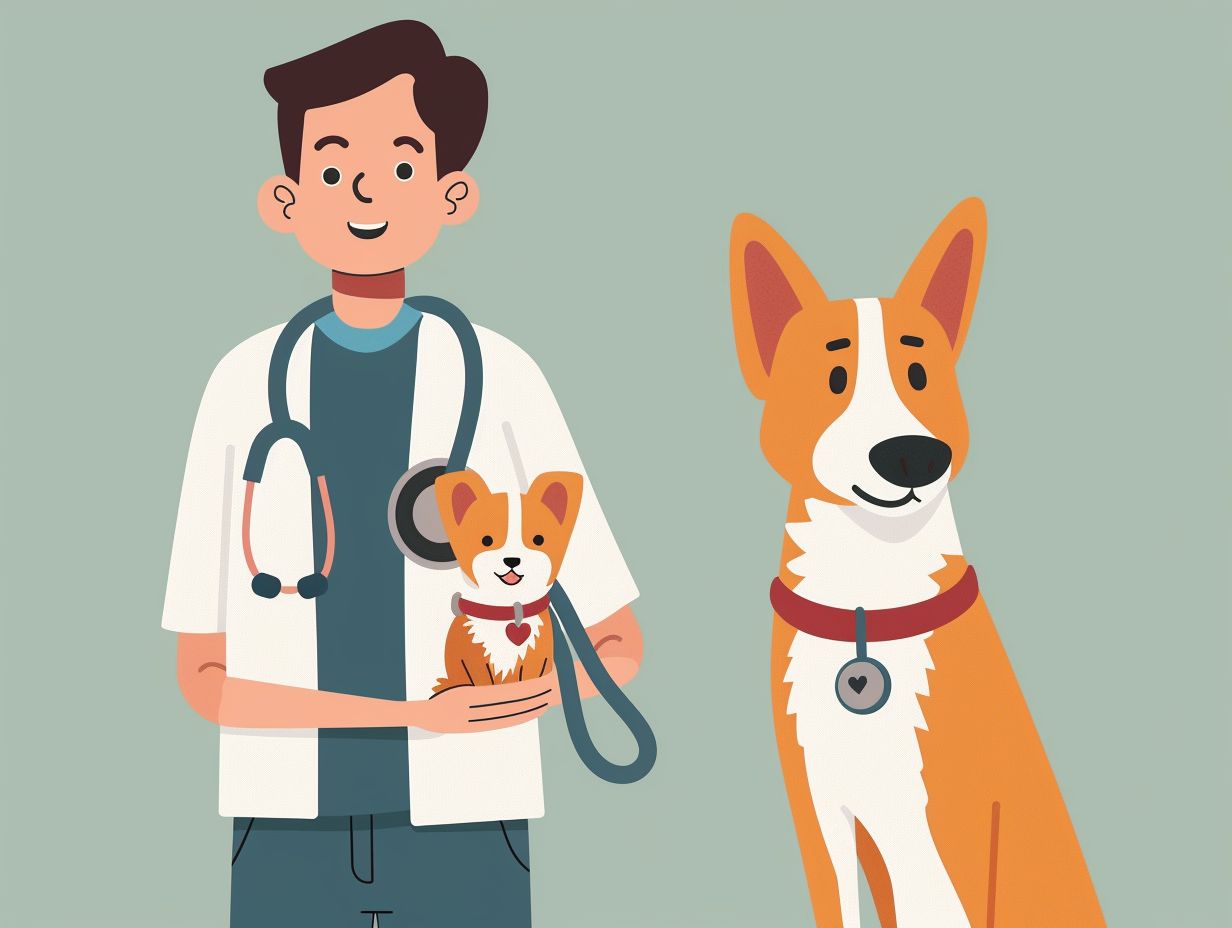
Saving for pet care expenses is a prudent way for pet owners to ensure they have financial resources available for their pets’ medical treatment. Planning and budgeting for pet healthcare expenses can help manage total expenditures effectively. Accumulating a specific amount from monthly earnings can assist in building a fund designated for veterinary consultations, standard vaccinations, and regular check-ups.
Having an emergency fund specifically for unexpected pet medical emergencies can provide financial security during unforeseen situations. By tracking and evaluating pet-related expenses, one can identify areas where cost-cutting measures could be implemented, such as utilizing preventive medical interventions or opting for less expensive but still high-quality pet products and services.
Other Options for Financial Assistance
Other financial assistance resources for pets help pet owners cover unexpected veterinary costs outside of traditional insurance approaches. These resources include low-cost clinics, veterinary schools, charities, and pet assistance programs, which are particularly beneficial for pet owners with limited finances and those whose pets require specialized care.
Low-cost veterinary clinics offer basic veterinary services such as vaccinations, annual check-ups, and minor treatments at a significantly lower cost than regular veterinary clinics. Veterinary school clinics provide discounted or free services for pets to give students practical training, although these services may have longer wait times than traditional clinics.
Pet charity organizations, such as Starfleet’s Emergency Assistance Program and The Dog and Cat Cancer Fund, offer financial aid or discounts for certain veterinary procedures. Special assistance programs are also available, catering to specific medical conditions or breeds. For example, the Breeders Club Pet Insurance provides a free 30-day insurance policy to pet owners who adopt a pet from a shelter.
Frequently Asked Questions
What are pet health plans?
Pet health plans are insurance policies specifically designed to cover medical expenses for pets. They are similar to human health insurance, but tailored to the needs of animals.
How do pet health plans differ from human health insurance?
Pet health plans typically cover a wider range of conditions and procedures that are specific to animals, such as vaccinations and spaying/neutering. They also have lower deductibles and premiums compared to human health insurance.
Do pet health plans cover pre-existing conditions?
Most pet health plans do not cover pre-existing conditions, which are health issues that have already been diagnosed or treated before the policy was purchased. However, some plans may offer coverage for certain pre-existing conditions at an additional cost.
Are there different types of pet health plans?
Yes, there are different types of pet health plans, including accident-only plans, wellness plans, and comprehensive plans. Each type offers different levels of coverage and may have varying deductibles and premiums.
Can I choose my own veterinarian with a pet health plan?
Most pet health plans allow you to choose your own veterinarian. However, some plans may have a network of preferred providers that offer discounted rates.
Do pet health plans cover alternative treatments?
Some pet health plans do cover alternative treatments such as acupuncture, chiropractic care, and hydrotherapy. However, it is important to check with the specific plan to see what treatments are covered.



